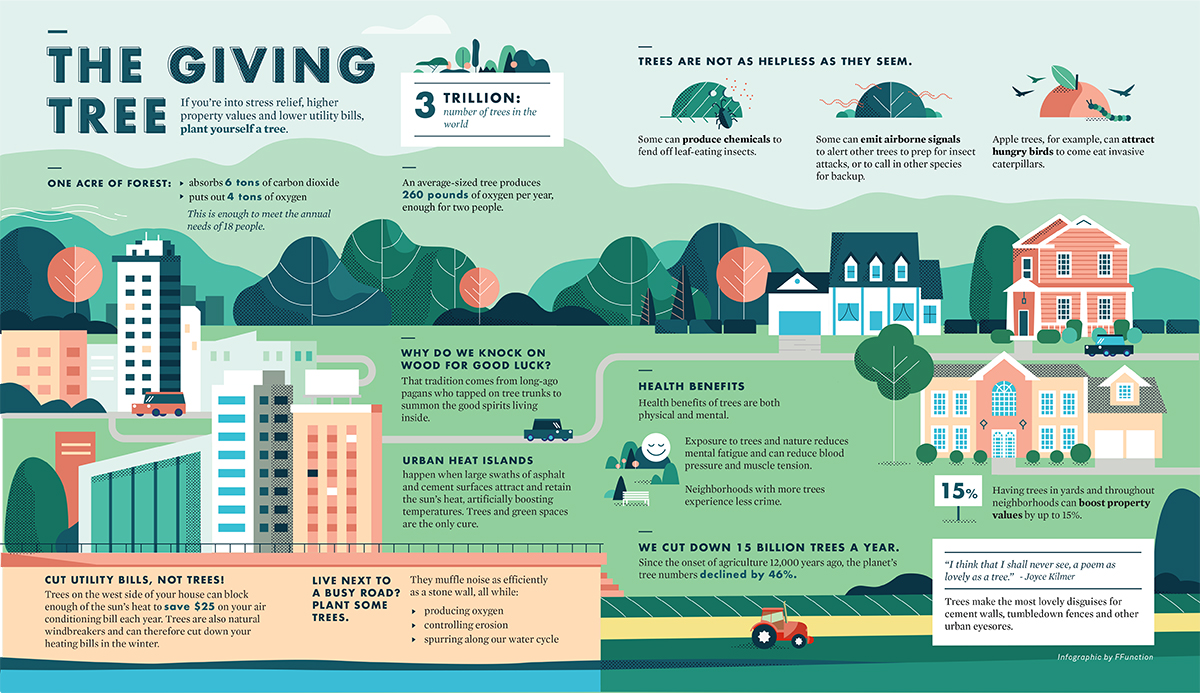
Arbor Day isn’t until April, but why wait? Trees yield benefits for you, your neighborhood and your planet for decades after they are planted. If you’re into stress relief, higher property values and lower utility bills, plant yourself a tree! Here are seven facts you probably didn't know about our forest friends (and seven reasons you should plant one today).
Space
Why do we knock on wood for good luck? That tradition comes from long-ago pagans who tapped on tree trunks to summon the good spirits living inside.
Space
An average-sized tree produces 260 pounds of oxygen per year, enough for two people.
One acre of forest absorbs six tons of carbon dioxide and puts out four tons of oxygen. This is enough to meet the annual needs of 18 people.
Space
Exposure to trees and nature reduces mental fatigue and can reduce blood pressure and muscle tension. And neighborhoods with more trees experience less crime.
Or, do you live next to a busy road? Plant some trees. They muffle noise that's keeping you up at night as efficiently as a stone wall, all while producing oxygen, controlling erosion and spurring along our water cycle.
Space
Urban heat islands happen when large swaths of asphalt and cement surfaces attract and retain the sun’s heat, artificially boosting temperatures. Trees and green spaces are the only cure.
I think that I shall never see, a poem as lovely as a tree. Joyce Kilmer, American Writer
Trees make the most lovely disguises for cement walls, tumbledown fences, and other urban eyesores.
Space
Cut utility bills, not trees! Trees on the west side of your house can block enough of the sun’s heat to save $25 on your air conditioning bill each year. Trees are also natural windbreakers, and can, therefore, cut down your heating bills in the winter.
Having trees in yards and throughout neighborhoods can boost property values by up to 15 percent.
Space
Some trees can produce chemicals to fend off leaf-eating insects and some can emit airborne signals to alert other trees to prep for insect attacks or to call in other species for backup. Apple trees, for example, can attract hungry birds to come eat invasive caterpillars.
Space
There are roughly 3 trillion trees in the world. We cut down 15 billion trees a year. Since the onset of agriculture 12,000 years ago, the planet’s tree numbers declined by 46 percent.
Space






